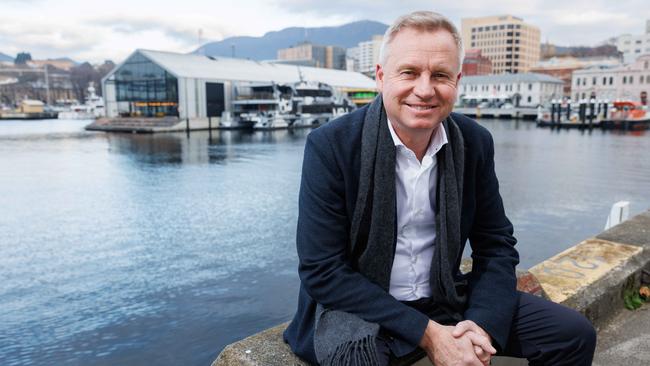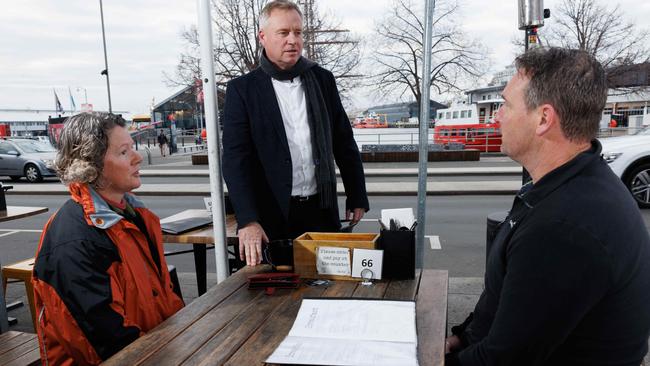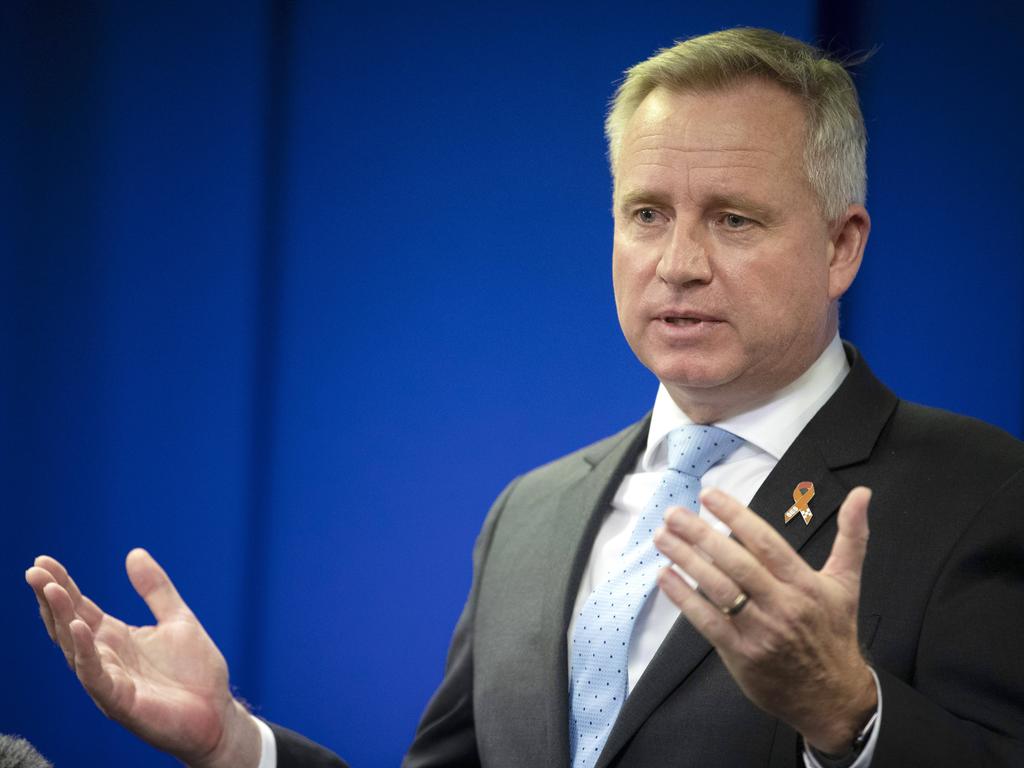Tasmanian Liberal Premier Jeremy Rockliff backs voice, republic and land returns
Tasmania’s new Liberal Premier has promised to campaign for an Indigenous voice, backed a republic and flagged debate on whether nuclear submarines should be welcomed in his state.

Tasmania’s new Liberal Premier has promised to campaign for an Indigenous voice, backed a republic and flagged debate on whether nuclear submarines should be welcomed in his state.
Jeremy Rockliff said he would be a “reformist”, revealing an ambitious agenda including a treaty and Indigenous land returns, broadening state taxes and modernising local government.
On the voice to federal parliament, Mr Rockliff said he had given an undertaking to Anthony Albanese to back the national referendum and was also willing to consider a mirror voice to state parliament.
“I’ve said to the PM that of course I will support that effort very much – and I’m very committed to it at a state level as well,” he said.
The Liberal moderate, chosen by his party to replace popular premier Peter Gutwein, who quit politics in April, revealed he was an enthusiastic republican who actively campaigned for a “yes” vote in the 1999 referendum.
“I remember standing on the polling booths at Latrobe, a little town close where I live, and handing out how-to-vote ‘yes’ cards, without too many Liberals around me at the time, I have to say,” he said.
His electorate of Braddon, in Tasmania’s Northwest, returned one of the nation’s lowest “yes” votes, but he remained a committed republican.
“I believe our system of government works well in Australia; it’s just my fundamental philosophical view that we should have an Australian head of state,” he said.
“My kids, your kids, everyone’s children, should be able to aspire to be the head of state in their own country and they can’t now. As much as I respect … Queen Elizabeth … I do believe Australia should have its own head of state.”
He was still forming a view on the Australian Republican Movement’s new republic model – a president elected by the people from candidates nominated by state and federal parliaments.
While keen for Tasmania to play a role in the nation’s $200bn defence bonanza, he was equivocal on whether nuclear submarines would be welcomed in a state where most industries are based on “clean, green” branding.
It was “a debate for another day”, but one that would need to be had. “I’m absolutely certain that is a discussion and no doubt vigorous debate people will have,” he said.
There is expected to be particular hostility to nuclear sub visits in Hobart, which takes in the left-leaning electorate of Clark and has a long history of protest led by Bob Brown, among others, against visiting nuclear-powered vessels.

Mr Rockliff foreshadowed a national campaign in the lead-up to the next federal election to indefinitely extend the no-worse-off guarantee that protects smaller and less resource-rich states from recent changes to GST distribution. The guarantee – worth about $250m to Tasmania across the current four-year budget cycle – is due to expire in 2026-27.
Mr Rockliff said Western Australia – which pushed for the GST distribution changes that disadvantaged Tasmania – would be isolated if it opposed permanently extending the no-worse-off guarantee.
“They (WA) are one state – I look at Queensland, Victoria, South Australia – all Labor states as well (backing extension of the guarantee),” he said. “We’ll all be united in ensuring that we get our fair share of GST.”
He said federal Health Minister Mark Butler had shown interest in his push for a pilot program in Tasmania, whereby the state would provide facilities for GPs in regional areas and employ them on salaries supported by the federal government, to address the severe shortage of affordable primary health care.







To join the conversation, please log in. Don't have an account? Register
Join the conversation, you are commenting as Logout